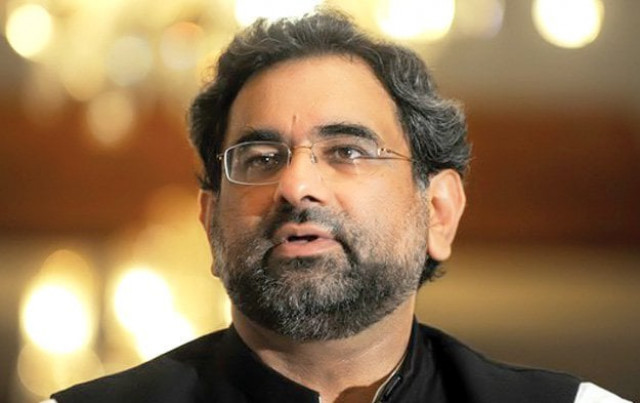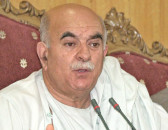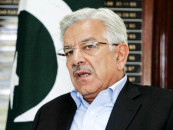'Irreconcilable elements' not to be spared
Pakistan, Afghanistan decide to move effectively against fugitives posing security threats to country

PHOTO: FILE
The understanding -- reached during Prime Minister Shahid Khaqan Abbasi’s daylong trip to Kabul on Friday -- was part of a series of steps the two sides have agreed upon to not only improve bilateral ties but to also find a political solution to the never-ending conflict in Afghanistan.
The two sides; however, did not identify the ‘irreconcilable elements’. Officials familiar with the development explained that the two countries would mutually decide on the issue.
In the past, Afghanistan repeatedly urged Pakistan to take action against the Haqqani network -- an Afghan Taliban affiliated group that carried out some of the deadliest attacks targeting both the Afghan and US interests.
Pakistan always maintained that it would not fight the Afghan war on its soil.
Pak-Afghan leaders reiterate need for achieving regional security
But the latest agreement that was officially acknowledged by the Foreign Office on Sunday appears to suggest that Pakistan is willing to take on elements not ready to come to the negotiating table.
Although a joint statement was issued at the conclusion of Abbasi’s visit to Kabul on Friday, Islamabad on Sunday released another handout providing specific details.
The statement said Prime Minister Abbasi and President Ashraf Ghani agreed on key principles to operationalise the working groups under Afghanistan-Pakistan Action Plan for Peace and Solidarity (APAPPS).
While Pakistan reaffirmed its support to the Afghan-led and Afghan-owned peace and reconciliation process, the two countries decided to undertake “effective actions against fugitives and the irreconcilable elements posing security threats to either of the two countries”.
PM Abbasi says Afghan visit to prove a milestone
At the same time both the countries agreed to deny use of their respective territory by any country, network, group or individuals for anti-state activities against either country.
The two sides also decided to put in place a joint supervision, coordination and confirmation mechanism through liaison officers (LOs) for the realisation of agreed actions.
The two countries commit to avoid territorial and aerial violations of each other’s territory.
In another major step to build confidence, the two countries agreed to avoid public blame game and instead use APAPPS cooperation mechanisms to respond to mutual issues of contention and concerns.
The outcome was thought to be the result of concerted overt and covert efforts by Pakistan and Afghanistan to remove irritants in their bilateral ties.
Pakistan, Afghanistan wrap up talks on counter-terrorism, repatriation of refugees
The process began in October last year when Army chief Gen Qamar Javed Bajwa had undertaken a visit to Kabul where he held in-depth discussions with top Afghan political and military leadership.
It was at that meeting when Pakistan proposed a new framework, envisaging a raft of measures to improve bilateral ties between the two countries as well as working together for finding a political solution to the Afghan conflict.



















COMMENTS
Comments are moderated and generally will be posted if they are on-topic and not abusive.
For more information, please see our Comments FAQ